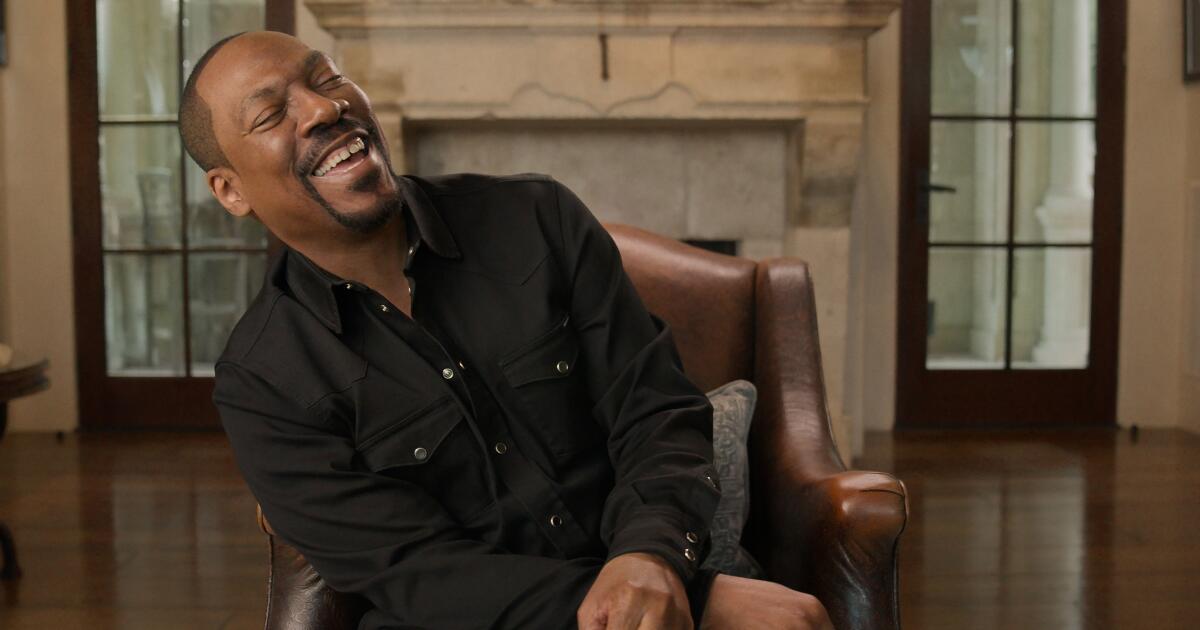Copyright Los Angeles Times

Eddie Murphy has solidly been established as Hollywood royalty after a decades-long career stretching from “Saturday Night Live” to “The Nutty Professor” to “Dreamgirls” and beyond. A key hallmark of Murphy’s status is his voluminous gallery of offbeat characters — an impeccably attired prison convict, a clumsy professor, a wisecracking donkey, an elderly Jewish man and even an obese, abusive wife. In Netflix’s “Being Eddie,” now streaming, Murphy lifts the veil on the persona he feels the closest to — Eddie Murphy. Directed by Angus Wall (an executive producer of “The Greatest Night in Pop”), the documentary traces the meteoric rise and triumphs of Murphy, who seldom grants interviews and is fiercely private about his creative process and personal life. With his trademark humor and probing insight, the entertainer offers candid perspective of his trajectory from a kid in New Jersey performing stand-up to joining “Saturday Night Live” right out of high school, his string of hit films (“48 Hrs.,” “Trading Places,” “Eddie Murphy Raw”) and his transition from foul-mouthed provocateur to family-friendly films. He also addresses some of his misfires (“Vampire in Brooklyn”), and throws more than a little shade at “Saturday Night Live” and the Academy Awards (“I haven’t gotten an Oscar, and I’ve done everything”). The film is largely set at Murphy’s castle-like estate, where he’s seen hanging out with his 10 children and second wife, Paige Butcher. (“My legacy is my children, not what I did at work,” he says. “My kids are the center of my life. It’s all about them... If you put your family first, you will never make a bad decision.”) Jerry Seinfeld, Dave Chappelle, Chris Rock, Kevin Hart and Pete Davidson are among the numerous entertainers who comment on Murphy’s influence on popular culture. The following are some of the more fascinating takeaways from “Being Eddie.” He recalled a night when he was 19 and going to a blues bar with fellow comedians John Belushi and Robin Williams, and “they put some blow on the table.” While hanging out with soul superstar Rick James during the 1980s, Murphy recalled making a quick exit “when certain people came into the room.” “I was never curious about it,” he says. “I never tried cocaine or touched cocaine. I don’t drink, I don’t smoke cigarettes. I never smoked a joint until I was 30 years old.” Others confirm Murphy’s low-key nature offscreen, including actor Jamie Foxx, who says, “Eddie is very introverted.” At a party, Eddie “will sit in the back of the room with a Coca-Cola.” On a 1995 “Saturday Night Live” segment of “Spade in America,” Spade showed a picture of Murphy and took a swipe at the box-office failure “Vampire in Brooklyn,” quipping: “Look, children, it’s a falling star. Make a wish.” The joke hurt Murphy: “It was like your alma mater taking a shot at you, at my career, not how funny I was.” He noted that the joke had to go through several channels and producers before it aired. He distanced himself from the show as a result. Murphy took a break from show business in 2011 after a string of what he called “s— movies.” But wanting to remind folks that he could still be funny, he decided to bury the hatchet with “Saturday Night Live,” returning to host in 2019: “‘SNL’ is part of my history. I need to reconnect with that show because that’s where I come from.” While presenting the last award during the 1988 Academy Awards, Murphy went off-script and declared, “I’m going to give this award, but Black people will not ride in the caboose of society and not bring up the rear anymore.” He says there was no media coverage of his remarks, and no pictures of him at the ceremony: “It’s like I wasn’t at the Oscars.” His last appearance at the awards was in 2007 at the 79th Oscars as a supporting actor nominee for “Dreamgirls.” He was seen as a front-runner after winning awards at the Screen Actors Guild and Golden Globe ceremonies. But he lost to Alan Arkin of “Little Miss Sunshine,” whose kindly grandfather character was only on screen for less than 15 minutes. In “Being Eddie,” Murphy maintains he was not upset with losing the Oscar: “The mindf— is that I got dressed and went to the thing, because I usually don’t go to awards shows. I could have f— lost at home. I’m all in this f— tuxedo. What a waste of time.” He suspects that “Norbit,” which was released during awards season, may have cost him the Oscar for “Dreamgirls.” Billboards promoting the film showed Murphy as an overweight woman in a fat suit with garish eye makeup. Industry experts at the time said the image put off potential Oscar voters and upset Black activists who claimed he was perpetuating demeaning racial stereotypes. (Murphy: “It s— up the waters”).



